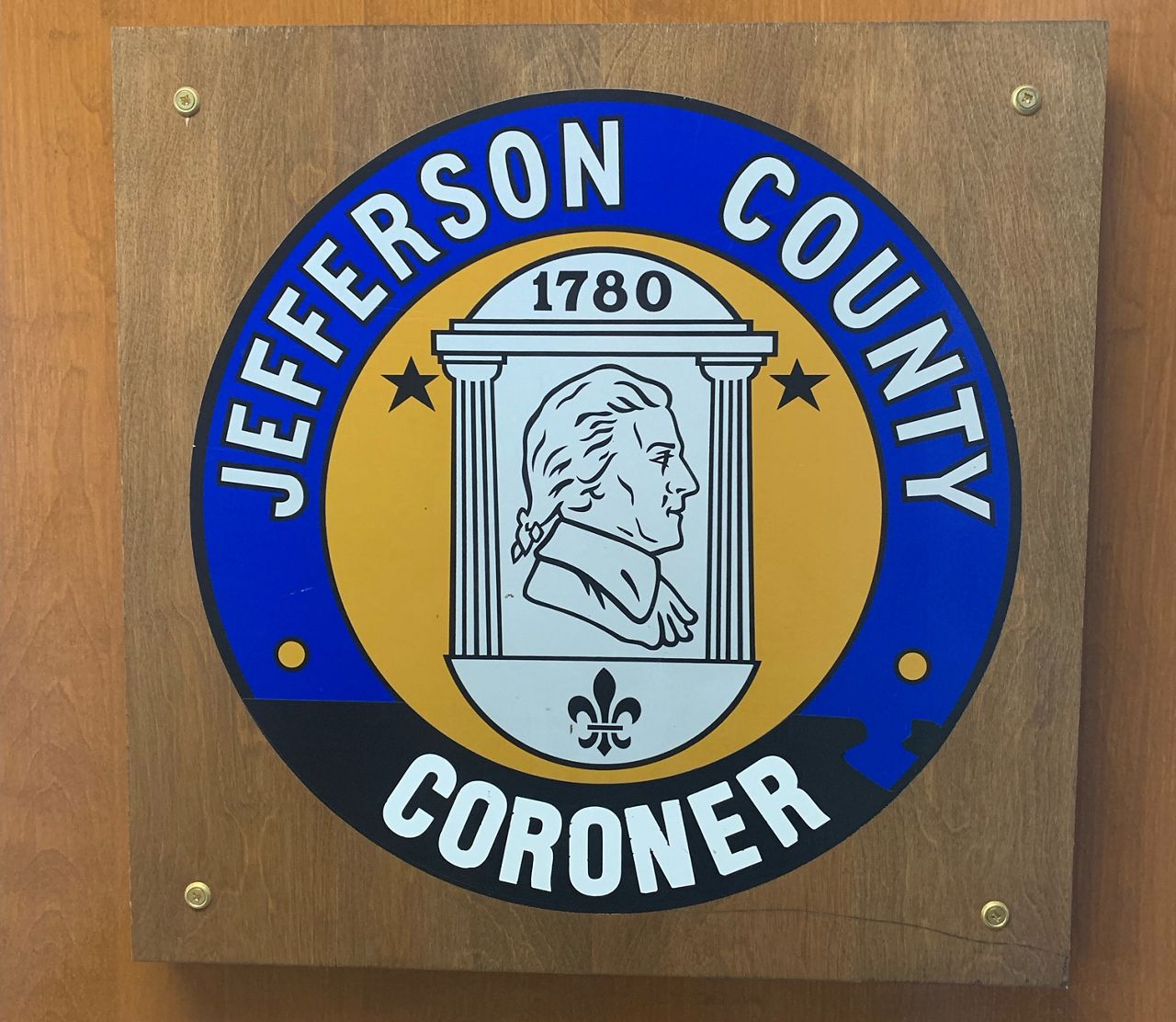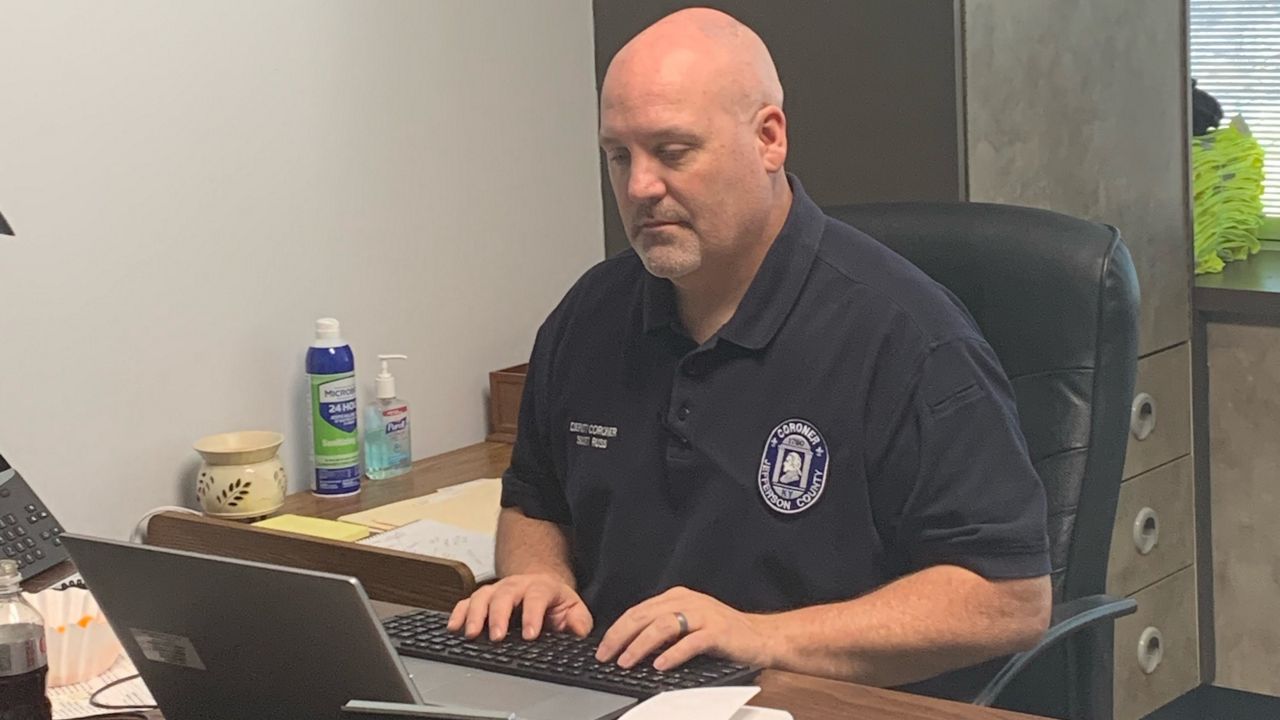LOUISVILLE, Ky. — On some days, Scott Russ is called to a fatal car crash. On others, it’s a murder scene, overdose, fatal fall, or suicide. And then there are the days when it’s all of those.
“There have been times when I’ve got seven pages to seven scenes within two minutes,” said Russ, Jefferson County’s Chief Deputy Coroner.
In the past two years, the small team at the Jefferson County Coroner’s office has seen an unprecedented increase in cases, driven by spikes in the county’s homicide and overdose rates. In 2019, the office took on 1,977 cases. That number increased to 2,493 in 2020 and 2,575 in 2021.
That’s only increased the difficulty of a job that's inherently stressful.
“The only thing we deal with, 24-seven, 365, is death,” Russ said. “It’s taxing on folks.”
Russ and the other deputy corners in the Jefferson County Coroner’s Office respond to homicides, suicides, overdoses, vehicle and pedestrian fatalities, accidental deaths, and natural deaths that occur in the home, excluding hospice.
Their job is to determine the cause and manner of death. Cause of death, Russ explained, is something like “multiple gunshot wounds or asphyxia via ligature hanging." Manner of death would be something like homicide or suicide.

There are 14 deputy coroners in Jefferson County, but prior to late last summer, that number was 12. Dr. Barbara Weakly-Jones, the elected Jefferson County Coroner, successfully lobbied Metro Council for a funding increase to hire two more. “Last year was probably our worst year,” she told lawmakers at the time.
But by the time 2021 ended, it took over that dubious distinction.
In 2021, the Jefferson County Coroner’s office investigated 211 homicides, up from 197 in 2020 and 128 in 2019. Those investigations, which are the most time-consuming, include those handled by the Louisville Metro Police Department (LMPD) and smaller police departments within Jefferson County, such as Jeffersontown, Shively, or St. Matthews police.
Russ said overdoses are also up significantly from the 200 or so that the office worked six or seven years ago.
“Two years ago we did 604,” he said. “As of today, with a few pending toxicology reports, we’re at 603 for last year. The assumption is five or six more will come back and we’ll be at 608 or 610 overdose deaths for the last year. That number is really unbelievable. It’s hard to even put into words".”
Like many of his colleagues, Russ is a former police officer. As a homicide detective with LMPD, he often worked with deputy coroners. “We built a relationship over the decades,” he said.
After his retirement from the police force, Russ joined the coroner’s office, which also employees former paramedics.
Russ said that experience helps coroners cope with a job that doesn’t come with the highs of police work — “There are days as a police officer when you do a lot of good for people,” he said — but include many of the lows.
“When you have to tell family members that their 20-year-old daughter or son was killed in a car accident or the victim of a murder or passed away at a party from an overdose, that makes it even that much more difficult of job,” he said.
The coroner’s office is also responsible for approving every cremation in the county. Those numbers have also increased in the past two years. In 2020, the coroner’s office approved nearly 4,000 cremations, up 861 from the year before. In 2021, Russ said, the office did “pretty close to 5,500 approvals.”
Last year’s addition of two deputy coroners has lightened the load on the dozen who were already on the job, allowing everyone to feel like they can "breathe," Russ said. After two years of mounting deaths, that's what they needed.



